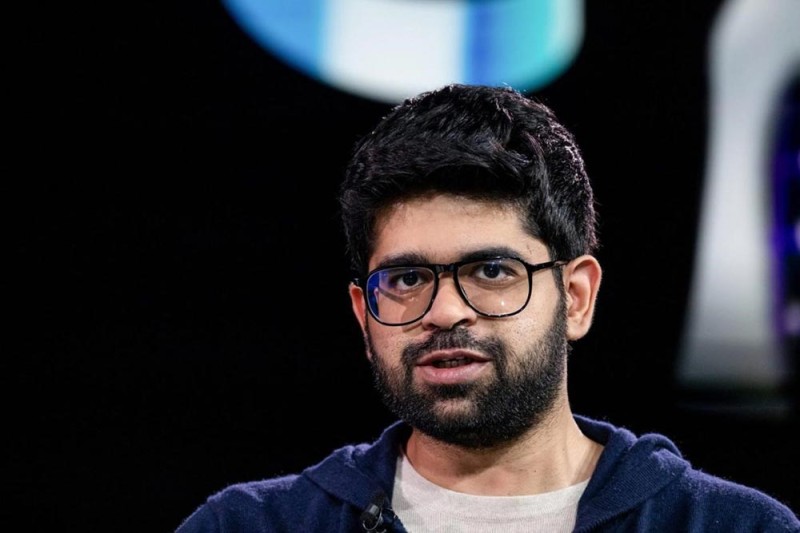
据《华尔街日报》报道,作为人工智能领域的新兴力量,Perplexity已提出345亿美元的惊人报价,意在收购谷歌Chrome浏览器。Perplexity向该报证实了这一未经邀约的报价,且此报价远超其自身180亿美元的估值。当下正值两家公司的关键节点:Perplexity上月刚推出其自有人工智能原生搜索浏览器Comet,此举显然旨在与谷歌Chrome展开竞争。与此同时,谷歌的命运也悬而未决,原因是联邦法官正在权衡2024年裁决后应采取的补救措施,该裁决认定谷歌非法垄断搜索市场。Perplexity在致《华尔街日报》的声明中表示,其提出收购要约旨在“通过将Chrome交由有能力的独立运营商运营,以满足反垄断措施中最高的公众利益”。
美国司法部针对谷歌发起的反垄断诉讼始于2020年,指控该公司通过与设备制造商及浏览器开发商达成默认搜索协议,以非法手段打压竞争。去年,美国地区法官阿米特·梅塔(Amit Mehta)裁定,谷歌确实通过反竞争手段垄断了搜索市场。其中最为关键的一环,恰好与Perplexity所提议的内容不谋而合:谷歌是否应被强制剥离Chrome浏览器——这款安装在数十亿台设备上、全球使用量占比超60%的浏览器。
诚然,Chrome不仅仅是一款网页浏览器,它更是将用户与谷歌搜索连接起来的战略枢纽,同时也是支撑谷歌价值2万亿美元广告业务的数据宝库。Chrome拥有约35亿用户,这一规模使其占据用户数据收集和默认搜索引擎设置的核心地位。出售Chrome是美国司法部针对谷歌提出的补救措施中的首要建议。
值得一提的是,DuckDuckGo首席执行官加布里埃尔·温伯格(Gabriel Weinberg)近期在法庭上作证称,Chrome价值可能高达500亿美元;部分分析师给出的估值则更为保守,约为200亿美元。Perplexity的报价为345亿美元,正好处于这一区间内。
Perplexity的理由
Perplexity是一家在2022年还鲜为人知的初创公司,如今已发展成为估值达180亿美元的高调竞争对手,目前拥有约3000万月活跃用户,年营收约为1.5亿美元。其核心产品——一款人工智能驱动、附带来源引用功能的实时搜索引擎——被定位为传统搜索引擎及OpenAI的ChatGPT、Anthropic的Claude等领先人工智能助手的挑战者。Perplexity已与多家出版商达成合作,包括《时代》周刊、《洛杉矶时报》以及(另外需要说明的是)《财富》杂志。
Perplexity允许用户从多个热门模型中进行选择,包括GPT-5、谷歌的Gemini 2.5 Pro以及Claude Sonnet 4.0,后者吸引了包括英伟达(Nvidia)、软银(SoftBank)和杰夫·贝佐斯(Jeff Bezos)在内的主要投资者。Perplexity也已成为热门的收购目标,行业分析师认为,苹果应收购Perplexity以强化其目前相对滞后的人工智能产品矩阵,并降低对谷歌搜索的依赖。
诚然,Perplexity已拥有专属的人工智能网页浏览器——Comet。这款浏览器能够总结网页内容、智能管理标签页、回答页面内容相关问题,还能自动执行日程安排和在线购物等任务。Comet采用混合人工智能架构,将本地化处理(用于涉及隐私的敏感操作)和基于云的模型(如GPT-4o、Claude 3.5以及Perplexity的自有算法)相结合,以处理更为复杂的查询和代理功能。Perplexity的首席执行官阿拉温德·斯里尼瓦斯在领英(LinkedIn)上将Comet描述为“认知操作系统”。
在致Alphabet首席执行官桑达尔·皮查伊(Sundar Pichai)的信中,Perplexity表示其提出的收购要约,旨在通过将Chrome交由“有能力的独立的”运营商运营,以服务于“最高公共利益”。该公司承诺将继续维护Chromium(Chrome及其他众多浏览器的开源基础),并保证Chrome内继续默认使用谷歌搜索引擎,但用户可自行更改设置。在美国司法部考虑如何为针对谷歌垄断行为的调查画上句号之时,这一点可能至关重要。
值得一提的是,谷歌此前一直反对任何强制出售Chrome的方案。首席执行官桑达尔·皮查伊在作证时表示,剥离Chrome会对谷歌的创新能力造成损害,威胁用户隐私和网络安全,并对互补服务产生不利影响。该公司提出了更有限的补救措施——主要是修改或终止与苹果、Mozilla和安卓(Android)的独家协议——以在不进行出售的情况下推动市场竞争。
Perplexity和谷歌尚未立即回应《财富》杂志的置评请求。
为撰写本报道,《财富》杂志使用生成式人工智能协助完成初稿。在发布前,编辑已核实信息准确性。(*)
译者:中慧言-王芳
据《华尔街日报》报道,作为人工智能领域的新兴力量,Perplexity已提出345亿美元的惊人报价,意在收购谷歌Chrome浏览器。Perplexity向该报证实了这一未经邀约的报价,且此报价远超其自身180亿美元的估值。当下正值两家公司的关键节点:Perplexity上月刚推出其自有人工智能原生搜索浏览器Comet,此举显然旨在与谷歌Chrome展开竞争。与此同时,谷歌的命运也悬而未决,原因是联邦法官正在权衡2024年裁决后应采取的补救措施,该裁决认定谷歌非法垄断搜索市场。Perplexity在致《华尔街日报》的声明中表示,其提出收购要约旨在“通过将Chrome交由有能力的独立运营商运营,以满足反垄断措施中最高的公众利益”。
美国司法部针对谷歌发起的反垄断诉讼始于2020年,指控该公司通过与设备制造商及浏览器开发商达成默认搜索协议,以非法手段打压竞争。去年,美国地区法官阿米特·梅塔(Amit Mehta)裁定,谷歌确实通过反竞争手段垄断了搜索市场。其中最为关键的一环,恰好与Perplexity所提议的内容不谋而合:谷歌是否应被强制剥离Chrome浏览器——这款安装在数十亿台设备上、全球使用量占比超60%的浏览器。
诚然,Chrome不仅仅是一款网页浏览器,它更是将用户与谷歌搜索连接起来的战略枢纽,同时也是支撑谷歌价值2万亿美元广告业务的数据宝库。Chrome拥有约35亿用户,这一规模使其占据用户数据收集和默认搜索引擎设置的核心地位。出售Chrome是美国司法部针对谷歌提出的补救措施中的首要建议。
值得一提的是,DuckDuckGo首席执行官加布里埃尔·温伯格(Gabriel Weinberg)近期在法庭上作证称,Chrome价值可能高达500亿美元;部分分析师给出的估值则更为保守,约为200亿美元。Perplexity的报价为345亿美元,正好处于这一区间内。
Perplexity的理由
Perplexity是一家在2022年还鲜为人知的初创公司,如今已发展成为估值达180亿美元的高调竞争对手,目前拥有约3000万月活跃用户,年营收约为1.5亿美元。其核心产品——一款人工智能驱动、附带来源引用功能的实时搜索引擎——被定位为传统搜索引擎及OpenAI的ChatGPT、Anthropic的Claude等领先人工智能助手的挑战者。Perplexity已与多家出版商达成合作,包括《时代》周刊、《洛杉矶时报》以及(另外需要说明的是)《财富》杂志。
Perplexity允许用户从多个热门模型中进行选择,包括GPT-5、谷歌的Gemini 2.5 Pro以及Claude Sonnet 4.0,后者吸引了包括英伟达(Nvidia)、软银(SoftBank)和杰夫·贝佐斯(Jeff Bezos)在内的主要投资者。Perplexity也已成为热门的收购目标,行业分析师认为,苹果应收购Perplexity以强化其目前相对滞后的人工智能产品矩阵,并降低对谷歌搜索的依赖。
诚然,Perplexity已拥有专属的人工智能网页浏览器——Comet。这款浏览器能够总结网页内容、智能管理标签页、回答页面内容相关问题,还能自动执行日程安排和在线购物等任务。Comet采用混合人工智能架构,将本地化处理(用于涉及隐私的敏感操作)和基于云的模型(如GPT-4o、Claude 3.5以及Perplexity的自有算法)相结合,以处理更为复杂的查询和代理功能。Perplexity的首席执行官阿拉温德·斯里尼瓦斯在领英(LinkedIn)上将Comet描述为“认知操作系统”。
在致Alphabet首席执行官桑达尔·皮查伊(Sundar Pichai)的信中,Perplexity表示其提出的收购要约,旨在通过将Chrome交由“有能力的独立的”运营商运营,以服务于“最高公共利益”。该公司承诺将继续维护Chromium(Chrome及其他众多浏览器的开源基础),并保证Chrome内继续默认使用谷歌搜索引擎,但用户可自行更改设置。在美国司法部考虑如何为针对谷歌垄断行为的调查画上句号之时,这一点可能至关重要。
值得一提的是,谷歌此前一直反对任何强制出售Chrome的方案。首席执行官桑达尔·皮查伊在作证时表示,剥离Chrome会对谷歌的创新能力造成损害,威胁用户隐私和网络安全,并对互补服务产生不利影响。该公司提出了更有限的补救措施——主要是修改或终止与苹果、Mozilla和安卓(Android)的独家协议——以在不进行出售的情况下推动市场竞争。
Perplexity和谷歌尚未立即回应《财富》杂志的置评请求。
为撰写本报道,《财富》杂志使用生成式人工智能协助完成初稿。在发布前,编辑已核实信息准确性。(*)
译者:中慧言-王芳
Perplexity, an emerging force in artificial intelligence, has offered a staggering $34.5 billion for Google’s Chrome browser, according to the Wall Street Journal. The unsolicited bid, which Perplexity confirmed to the newspaper, is far in excess of Perplexity’s own $18 billion valuation and comes at a pivotal moment for both companies: Perplexity recently unveiled its own AI-native search browser, called Comet, last month, an explicit move to take on Google Chrome. Meanwhile, Google’s own fate is up in the air as a federal judge weighs what remedies should follow from the 2024 ruling that Google had illegally monopolized the search market. Perplexity said in a statement to the Journal that its bid is “designed to satisfy an antitrust remedy in highest public interest by placing Chrome with a capable, independent operator.”
The Justice Department’s antitrust case against Google, which began in 2020, accused the company of unlawfully suppressing competition by locking in default search deals with device manufacturers and browser developers. Last year, U.S. District Judge Amit Mehta ruled that Google had, in fact, monopolized the search market through anticompetitive tactics. Among the most consequential is exactly what Perplexity is proposing: whether Google should be compelled to divest Chrome, a browser installed on billions of devices and accounting for well over 60% of global browser usage.
Chrome, of course, is more than just a web browser; it’s a strategic linchpin connecting users to Google Search and a treasure trove of data fueling Google’s $2 trillion advertising apparatus. Chrome’s size—about 3.5 billion users—positions it at the fulcrum of both user data collection and default search engine placement. The sale of Chrome is one of the Department of Justice’s top recommendations as a Google remedy.
For what it’s worth, DuckDuckGo CEO Gabriel Weinberg recently testified in court that Chrome could be worth upwards of $50 billion; some analysts offer more conservative estimates for its valuation, around $20 billion. Perplexity’s bid, at $34.5 billion, lands squarely within that range.
Perplexity’s rationale
Perplexity, which has evolved from a little-known startup in 2022 to a high-profile competitor with an $18 billion valuation, now hosts about 30 million monthly active users and generates roughly $150 million in annual revenue. Its core product—a real-time AI-powered search engine with source citations—is positioned as a challenger to traditional search engines and leading AI assistants such as OpenAI’s ChatGPT and Anthropic’s Claude. Perplexity has partnered with several publishers, including Time, the Los Angeles Times, and, full disclosure, Fortune.
Perplexity allows you to choose from many of those popular models, including GPT-5, Gemini 2.5 Pro from Google, and Claude Sonnet 4.0, which has attracted major investors including Nvidia, SoftBank, and Jeff Bezos. Perplexity has also been a prime acquisition candidate, with industry analysts suggesting Apple should buy Perplexity to strengthen its currently lagging AI portfolio and rely less on Google for search.
And, of course, Perplexity already has its own AI web browser. Comet is capable of summarizing web pages, intelligently managing tabs, answering questions about on-page content, and automating tasks like calendar scheduling and online shopping. Comet’s hybrid AI architecture combines localized processing for privacy-sensitive operations and cloud-based models—such as GPT-4o, Claude 3.5, and Perplexity’s own algorithms—for more complex queries and agentic functions. Perplexity’s CEO Aravind Srinivas described Comet on LinkedIn as a “cognitive operating system.”
In its letter to Alphabet CEO Sundar Pichai, Perplexity said its offer was designed to serve “the highest public interest” by placing Chrome in “capable, independent” hands. The company vows to maintain Chromium, the open-source foundation of Chrome and many other browsers, and also promises to keep Google as the default search engine within Chrome, though it would allow users to easily switch. This latter point may prove crucial as the DOJ contemplates how it will conclude its probe into Google’s monopolistic practices.
For what it’s worth, Google has previously been opposed to any forced sale of Chrome. CEO Sundar Pichai has testified that divestiture would harm Google’s ability to innovate, threaten user privacy and cybersecurity, and damage complementary services. The company has proposed narrower remedies—chiefly, modifying or ending exclusive agreements with Apple, Mozilla, and Android—to allow greater competition without a selloff.
Perplexity and Google did not immediately respond to Fortune’s request for comment.
For this story, Fortune used generative AI to help with an initial draft. An editor verified the accuracy of the information before publishing.

